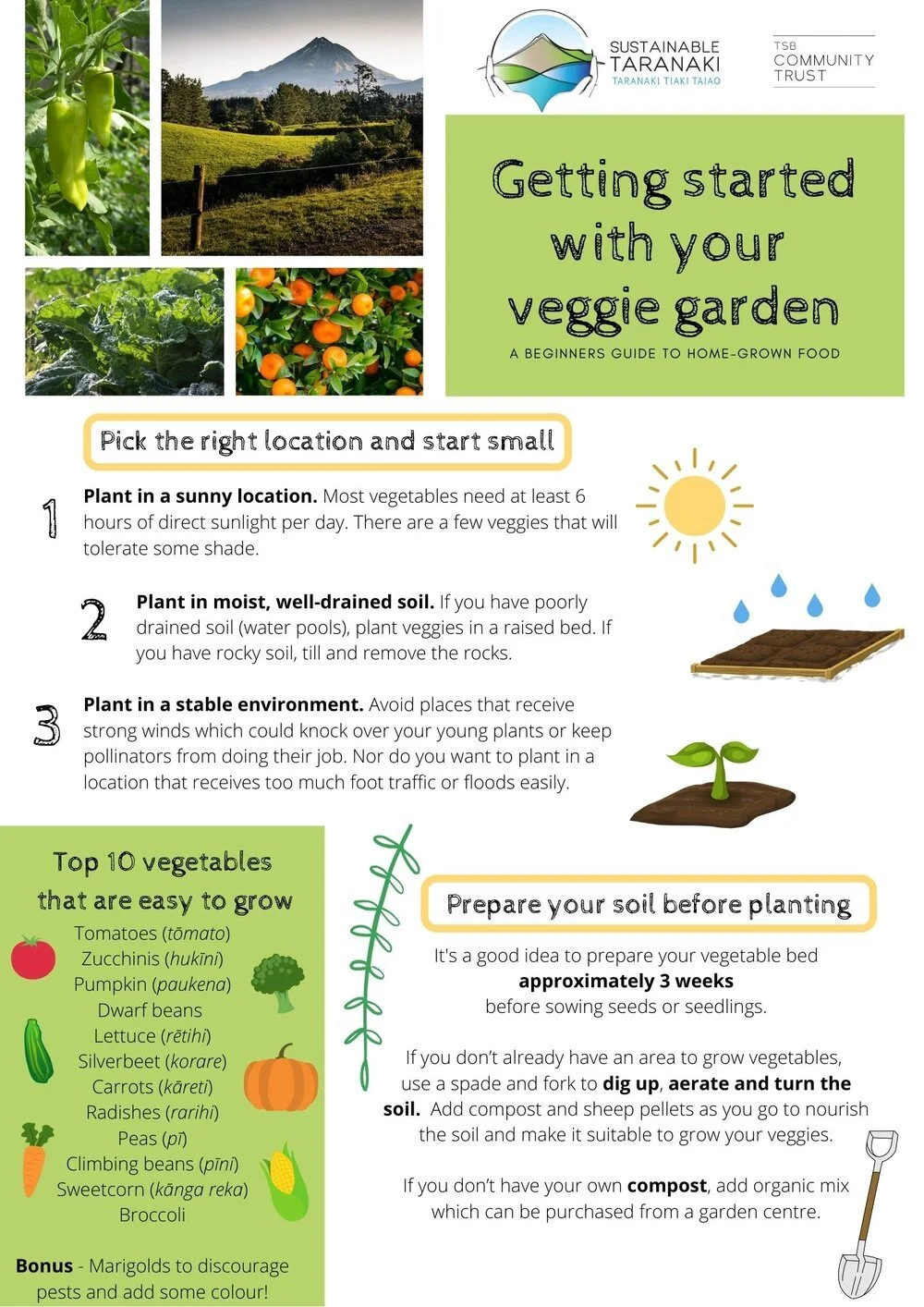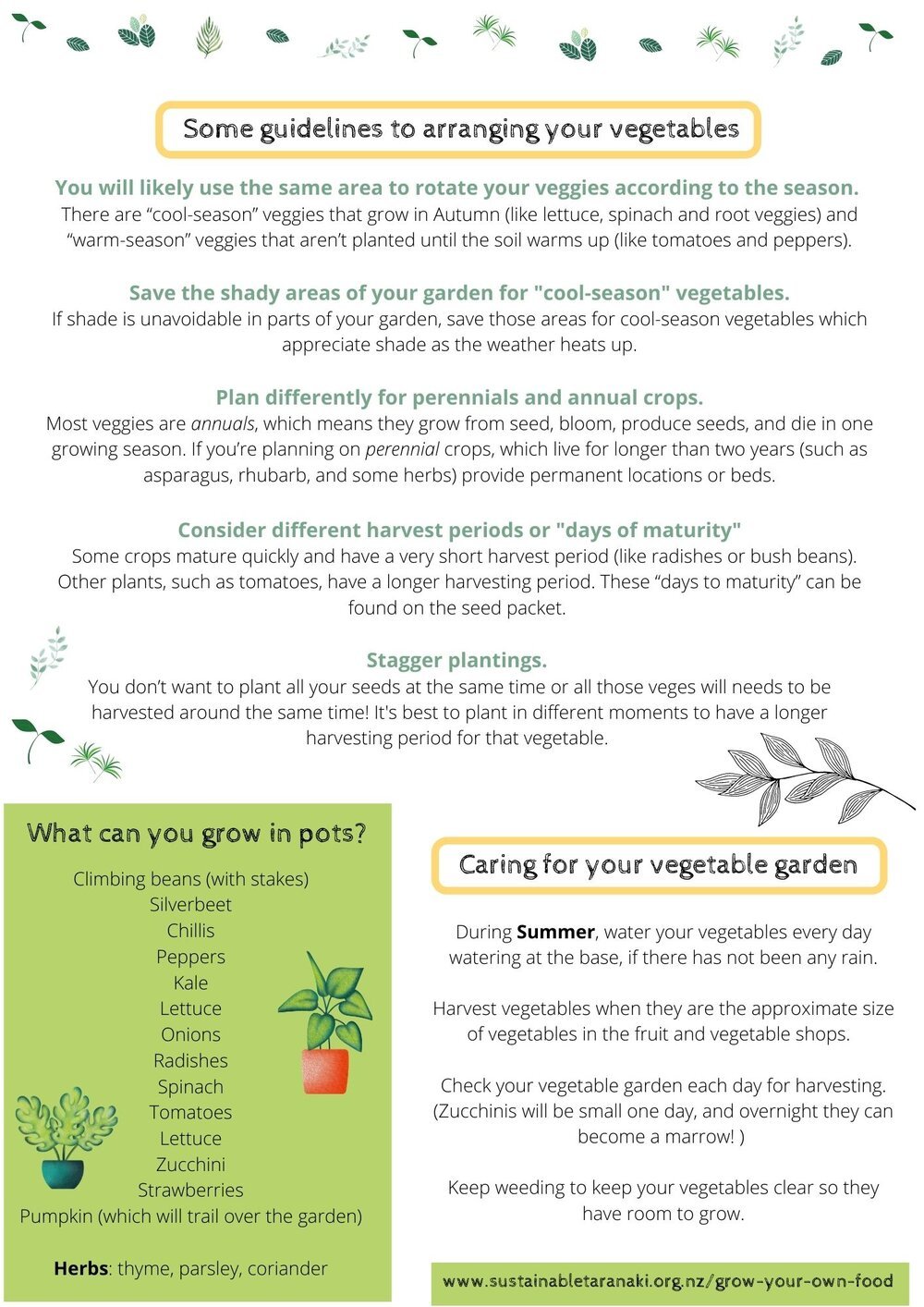Grow Your Own Food/Kai
Tangi te kawekawea; Waiho kia tangi ana; Tangi te wharau-roa. Waiho kia tangi ana; E tatari atu ana. Kia aroaro mahana; Ka taka mai te āhuru; Koia!
This is a Taranaki waiata sung while cultivating kūmara: Now sings the long-tailed cuckoo; There let it sing. And also sings the barred-breast cuckoo; There let it sing. They come in anticipation; The time of Summer heat; When all things feel the warmth. So may it be!
One of the best things you can do to reduce your personal impact on the environment, improve health outcomes, save money, be self-sufficient and grow towards a more resilient community is to grow your own kai.
Timing is Everything!
It is important to know what is best grown in what season, otherwise we may be planting something that will either not live long enough to produce any food, or will take longer than usual. Since every region is different, we have developed our own Taranaki growing calendar for gardening beginners. Have a look!
How To Guides
Learn the basics of starting your own vege garden at home.
How to avoid the most common winter-planting mistakes.
Seed Propagation DIY - Grow your own seeds!
Compost Lasagna Layering DIY - Easy & efficient for your garden!
Water Collection DIY - Why your garden needs rain water
Top Tips from the Sustainable Backyards Trail
We asked some of our hosts from the SBT this year to share their tips and insights on how to take good care of their gardens.
Have a look below at what they told us!
Visit the Sustainable Backyards Trail webpage to learn about the Trail.
Gardening and Waste Reduction
Gardening and waste reduction go hand in hand. Many people are reluctant to get into gardening as they think it involves lots of costs: buying pots, soil, seedling trays, seeds, compost... it all can be very expensive. However, it doesn't have to be! Here are a few ideas:
Reuse - Plastic ice cream containers can be great to grow your seedlings until they are strong enough to be transplanted into the garden. Just drill a few holes at the bottom to allow the water to drain out. Other containers are helpful too, and you don't need to spend on trays.
Upcycle - Pallets make great vege beds! And since the wood is untreated, they can also be composted once they are no longer needed.
Reduce - Save some of your recyclables and use them in your garden! Paper, cardboard and organic waste are great to make compost at home. Composting brings lots of nutrients that will allow your plants to grow healthy and you will also be reducing your waste.
Want to Learn More?
Have a look at our other pages:
Gardening Resources - for a list of local educational offerings, garden designers and suppliers.
The Junction Zero Waste Hub - information on leading a zero waste lifestyle
Video Gallery - including videos on composting and gardening
Composting - detailed information on how to start composting
Seedsaving - information on Taranaki Seedsavers and how to get involved.
Reducing food waste - how to reduce food waste in the home
Donating excess produce - who you can pass excess produce on to support the local community.




